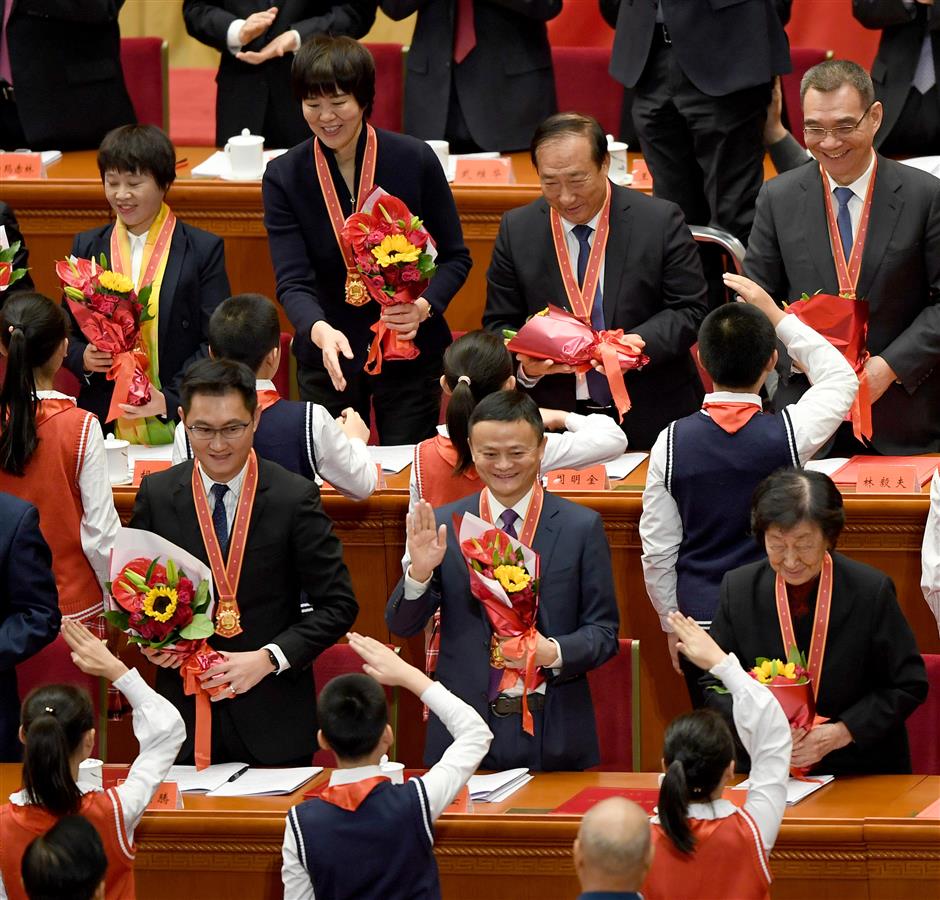Outstanding contributions to the advancement of nation honored
 0 Comment(s)
0 Comment(s) Print
Print E-mail Xinhua, December 19, 2018
E-mail Xinhua, December 19, 2018
Billionaire Jack Ma, NBA star Yao Ming and foreign guests were among 110 people recognized by the Communist Party of China yesterday for their "outstanding contributions" to the country's 40-year economic rise.

The dignitaries received medals from President Xi Jinping and other leaders in a ceremony at the Great Hall of the People in Beijing to mark the 40th anniversary of the launch of reform and opening-up.
The group was put on the same pedestal as China's first female Nobel laureate, an astronaut, military officers and deceased role models of the Party.
Ma, the founder of e-commerce giant Alibaba, is a Party member.
He was joined onstage by fellow billionaires Pony Ma, who founded Internet behemoth Tencent, and Robin Li, chief executive of search engine Baidu.
Yao, a retired center who played for the Houston Rockets, is now an entrepreneur and member of China's top political advisory group, the Chinese People's Political Consultative Conference.
Ten foreign guests received "reform friendship" medals, including German economist Klaus Schwab, founder of the Geneva-based World Economic Forum, the annual gathering of global government and business leaders where Xi delivered a defense of globalization last year.
China posthumously awarded medals to former International Olympic Committee President Juan Antonio Samaranch, who helped Beijing organize the 2008 Summer Olympics, and former Japanese Prime Minister Masayoshi Ohira, who was behind the normalization of relations between Japan and China in the 1970s.
The ceremony commemorated the launch on December 18, 1978, of the reform and opening-up drive, which transformed the once poor country into the world's second-biggest economy.
The 100 Chinese honorees included scientists, inventors and academics. Among those awarded are Nobel laureate Tu Youyou, who helped develop an anti-malaria medicine, and Yuan Longping, China's "father of hybrid rice."
The event also put the spotlight on low-ranking Party cadres who had spent decades working in either the countryside or state-owned industries. Some of them had helped spur growth in rural China by reforming land rights or establishing village committees.
It also included those who dared to push the envelope in the early days of reform.
For instance, a representative of a group of farmers from Xiaogang Village in east China's Anhui Province, who banded together to subvert the collective farming system, was among the honorees.





